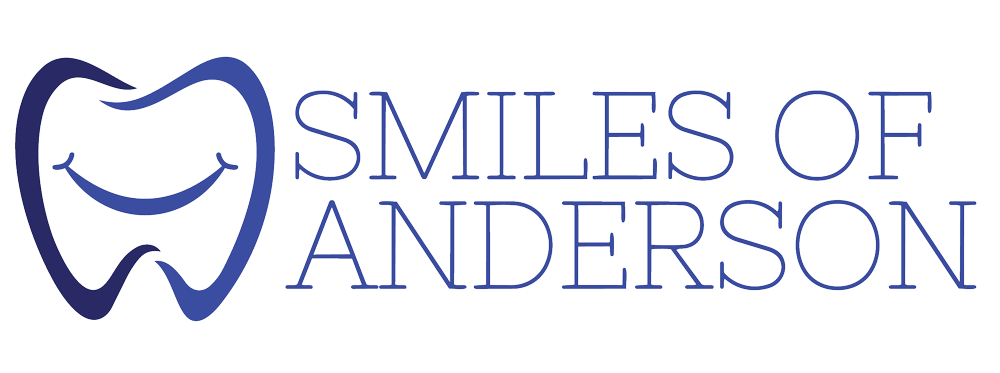How Bad Breath Develops and How to Minimize It
Causes of Bad Breath and How to Minimize It Effectively
Bad breath affects millions of people every day. You might wonder why your breath smells so bad or how to get rid of bad breath for good. The good news is that most cases of bad breath can be fixed with simple changes to your daily routine. Understanding what causes bad breath helps you take the right steps to fix it. Your mouth contains bacteria that feed on food particles and create smelly compounds. These bacteria multiply when you skip brushing, eat certain foods, or have dry mouth. Poor oral hygiene lets bacteria build up on your teeth, tongue, and gums. At Smiles of Anderson, we know that fresh breath starts with good oral care habits. Regular brushing, flossing, and dental checkups make a huge difference. You can also make lifestyle changes that reduce bacteria in your mouth and keep your breath smelling clean all day long.

What Causes Bad Breath?
Bad breath can happen for many reasons, but understanding the causes can help you prevent it. The main culprits often involve bacteria, poor dental care, and certain foods. Here’s a breakdown:
- Food Particles and Bacteria: Small food bits stuck in your teeth feed bacteria that create foul-smelling sulfur compounds.
- Plaque Buildup: Without proper brushing and flossing, plaque develops. This sticky layer holds millions of odor-causing bacteria.
- Tongue Bacteria: Bacteria often hide on the back of your tongue, an area many people miss when brushing.
- Dry Mouth: Saliva helps clean your mouth. When saliva decreases due to dehydration, medications, or mouth breathing, bad breath worsens.
- Strong-Smelling Foods: Foods like garlic and onions release compounds that enter your blood and affect breath when exhaled.
How to Minimize Bad Breath
A few simple daily habits can help you manage and prevent bad breath. Consistently cleaning your teeth, gums, and tongue removes the bacteria that cause unpleasant odors. Improving your daily oral hygiene routine is the most effective way to fix bad breath. You can support strong oral health in many ways, such as:
- Brush Thoroughly:Brush your teeth twice a day for two minutes with fluoride toothpaste. Clean all tooth surfaces and pay extra attention to your tongue, where bacteria often gather.
- Floss Daily:Floss once a day to remove food particles and plaque from between your teeth. Your toothbrush cannot reach these tight spaces where odor-causing bacteria thrive.
- Use Mouthwash: Rinse with an antibacterial mouthwash to kill bacteria in the areas of your mouth you might have missed. This helps ensure your whole mouth is clean and fresh.
- Stay Hydrated:Drink plenty of water throughout the day to support saliva production. Saliva naturally rinses away food particles and helps keep your breath fresh.
- Chew Sugar-Free Gum:Chew sugar-free gum after meals to stimulate saliva flow. This helps neutralize odors and freshen your breath.
Tips for Preventing Morning Breath
Waking up with bad breath can be frustrating. It happens because bacteria in your mouth multiply overnight. Your mouth produces less saliva while you sleep, which creates a perfect environment for these bacteria to grow. They then release gases that cause that unpleasant morning smell. Luckily, a few simple steps can help you wake up feeling fresh. Here are some tips to get rid of bad breath in the morning:
- Oral Hygiene at Night:Brush your teeth thoroughly right before bed. This removes food particles and plaque that bacteria feed on.
- Tongue Cleaning:Use a tongue scraper or gently brush your tongue. This removes bacteria that collect on its surface and contributes to bad breath.
- Stay Hydrated:Keep a glass of water by your bed. Sip it if you wake up with a dry mouth, as a dry mouth helps bacteria thrive.
- Bedroom Environment:Consider using a humidifier in your bedroom. Adding moisture to the air can help prevent your mouth from getting too dry while you sleep.
- Food Choices:Avoid eating spicy or strong-smelling foods right before bed. These foods can make morning breath worse and harder to control.
When Should I See a Dentist?
Professional dental care plays a key role in fixing bad breath problems. Schedule regular cleanings every six months to remove plaque and tartar that brushing cannot eliminate. Your dental hygienist can also show you better techniques for cleaning your teeth and tongue. See your dentist if bad breath continues despite good oral hygiene habits. Gum disease, tooth decay, or other oral health issues might be causing the problem. These conditions require professional treatment to resolve completely. Your dentist can also check for signs of more serious health problems. Sometimes bad breath indicates diabetes, liver problems, or respiratory infections. Early detection helps you get the right treatment quickly.
FAQs About Bad Breath and Managing It
Bad breath can be deeply frustrating. It can make patients self-conscious and worried about how others perceive them. Taking care of your oral health and making the right lifestyle choices can help take charge of this. Frequent questions we can help answer about how to fix bad breath include:
- Can certain foods cause bad breath? Yes, foods like garlic, onions, coffee, and alcohol can make your breath smell bad. These foods contain compounds that enter your bloodstream and come out through your lungs when you breathe.
- How long does it take to fix bad breath? Most people notice improvement within a few days of better oral hygiene. However, it may take longer if gum disease or other dental problems are causing the issue.
- Does mouthwash really help with bad breath? Antibacterial mouthwash can kill bacteria in your mouth and temporarily freshen your breath. However, good brushing and flossing habits are more important for long-term fresh breath.
Start Your Path to Fresher Breath Today
Taking control of your oral health leads to confident, fresh breath every day. The experienced team at Smiles of Anderson helps patients throughout Anderson, IN, achieve their best oral health with comfortable, advanced dental care. Our state-of-the-art technology and compassionate approach make every visit pleasant and effective. Schedule your appointment today to discuss your oral health goals and learn more about keeping your breath fresh. Professional cleaning, personalized advice, and ongoing support help you maintain the healthy smile you deserve.
